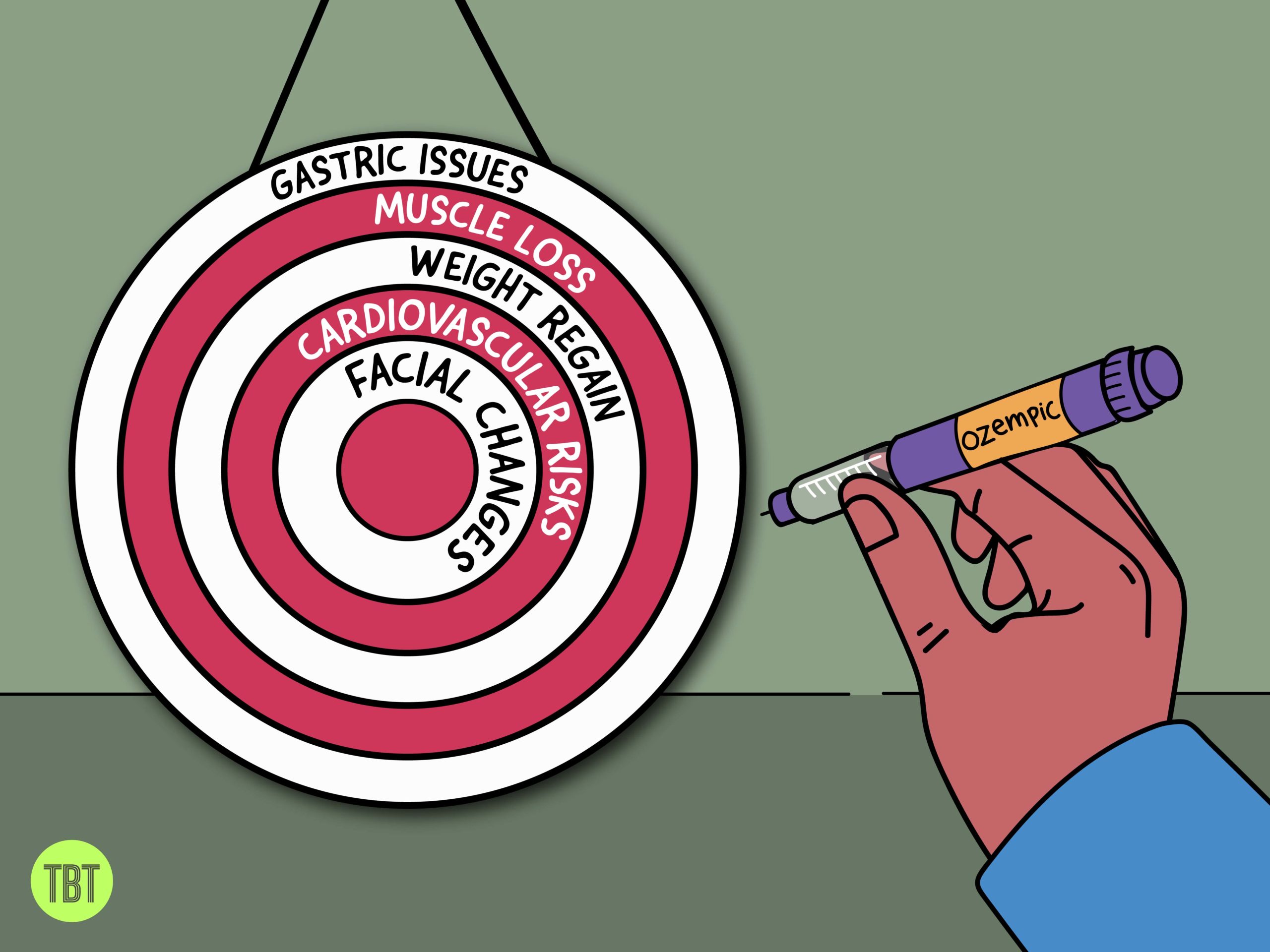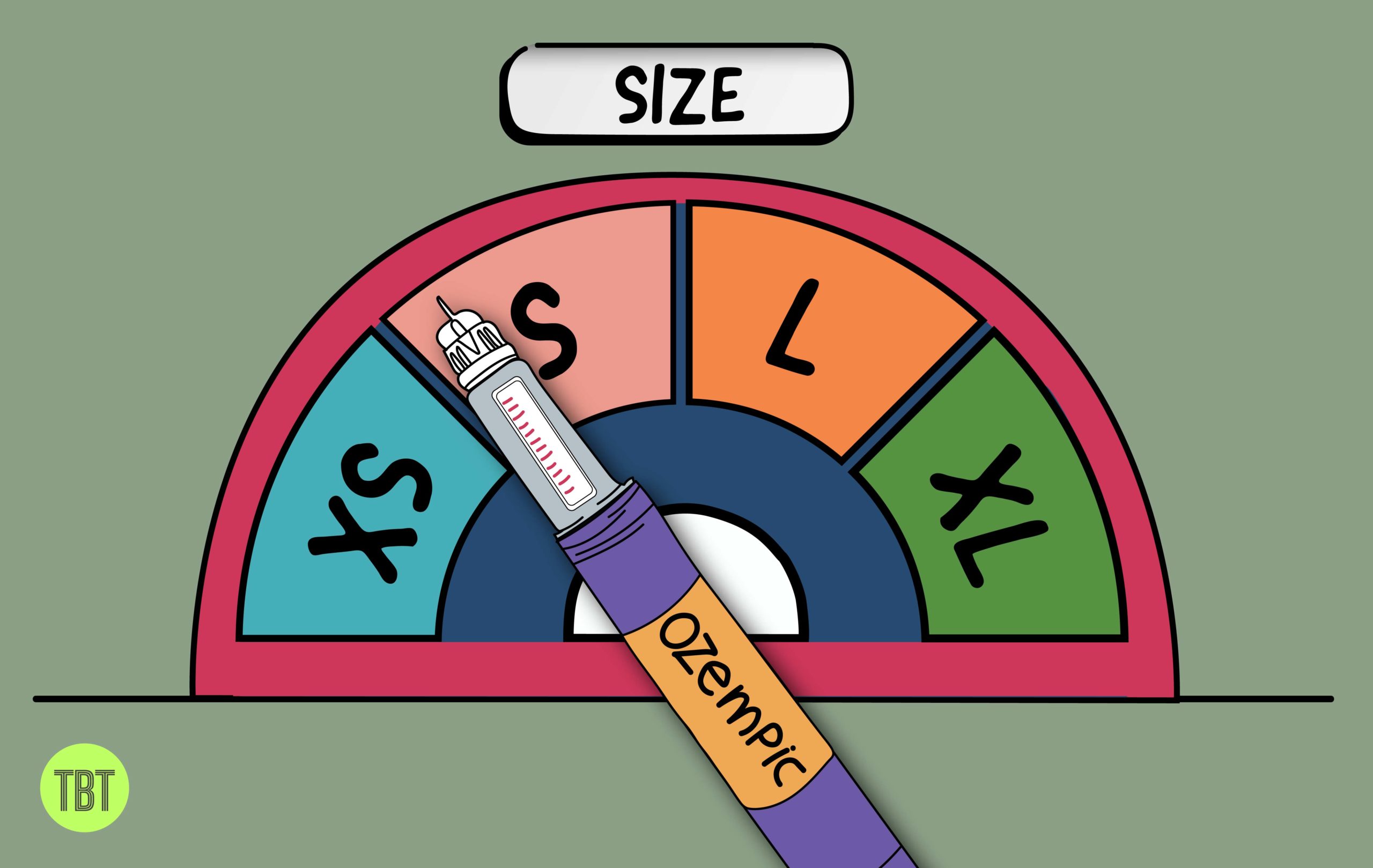Ozempic: Weight loss fad or wonder drug for diabetics?
What is semaglutide and how does it relate to weight loss?
The most trustworthy source of food and
fitness journalism in the country.
Editor’s note: In my debut article for TBT, I described long-term weight loss as a complex systemic problem, like a wrestling battle where the rules are rigged to make you lose. Having learnt to win that battle the hard way, I am naturally sceptical of any purported “miracle” solutions for weight loss. The latest buzz surrounds a drug called Ozempic, which you may have encountered if you’re active on Twitter or read American media.
So I asked Shantanu Kishwar, a freelance writer, to explore what this drug actually is and if it’s worth the hype. His to-the-point explainer today clears up a lot, but if you’ve got follow-up questions, do send them our way via email. You can follow Shantanu on Twitter and subscribe to his newsletter Multitudes.
– Samarth Bansal (samarth@thewholetruthfoods.com)
A diabetes drug called Ozempic has been making headlines in the USA because of its “miraculous” weight-loss effects. Its viral presence on social media was amplified by figures like Elon Musk, who credited it with helping him lose 30 pounds (approximately 13.6 kgs).
This surge in popularity has sparked debates surrounding its safety for weight loss and the appropriate candidates for its use.
While Ozempic has yet to gain traction in India, it’s a good time to explore where it fits within a holistic approach to good health.
What is Ozempic and how does it relate to weight loss?
Ozempic was first approved by the USA’s Food and Drug Administration (FDA) in 2017 as a treatment for Type-2 Diabetes. The drug’s active ingredient, semaglutide, helps lower blood sugar levels and control the production of insulin, the hormone that regulates blood sugar.
Notably, Ozempic users quickly observed an unintended benefit: significant and rapid weight loss. As a result, many started using Ozempic off-label, meaning for purposes other than its original intention.
Eventually, the FDA responded to this trend by approving another medication, Wegovy, in 2021, which contains a higher dosage of semaglutide and is specifically designed for weight loss treatment.
How do Ozempic and Wegovy actually work?
It’s important to remember that weight loss boils down to a simple principle: you need to burn more calories than you consume. (You can read more about it in this TBT guide.)
At its core, medications like Ozempic do one key thing: they help you manage your appetite and food intake, helping you to maintain a calorie deficit. Maintaining this deficit isn’t always easy, as discussed in a previous TBT article. No other ‘magic’ is happening.
 Ozempic helps you manage your appetite
Ozempic helps you manage your appetite
Here’s how it all comes together.
1. Semaglutide, the active ingredient in these drugs, does more than just regulate insulin. It mimics the effect of another hormone involved in digestion, called GLP-1. Which is why it’s called a ‘GLP-1 receptor agonist’.
2. When you eat, your intestines release GLP-1 hormone into your bloodstream. This hormone triggers various responses in your body. One crucial response is in the pancreas, where GLP-1 encourages insulin production (which lowers blood sugar) and discourages glucagon production (which raises blood sugar).
Semaglutide interacts with GLP-1 receptors in your pancreas, helping to control these processes.
3. But it doesn’t stop there. Your stomach also has GLP-1 receptors, and when semaglutide enters the picture, it slows down the emptying of your stomach.
Essentially, this means that food leaves your stomach at a more leisurely pace, making you feel full for a longer time. This slower release also helps prevent rapid blood sugar spikes, which is a good thing.

Semaglutide in ozempic slows down the emptying of your stomach
4. Your brain’s GLP-1 receptors get in on the action too. Semaglutide triggers a sense of fullness and helps reduce those cravings and urges that often lead to overeating.
In summary, semaglutide isn’t some magic potion that blocks calorie absorption. Instead, it amplifies the natural processes in your digestive system that keep your appetite in check, making it easier to eat less and consume fewer calories.
It’s important to understand that while these medications seem to be helpful, they are just one piece of the weight loss puzzle. Repeating for emphasis: losing weight requires creating a calorie deficit, and medications like Ozempic and Wegovy can be valuable tools in achieving this by helping you control your food intake and appetite.

An Ozempic user responds to Dr. Mike Varshavski’s video on the drug
🫂Tell your friends to GLP – go learn please. Share this link now
Is there scientific evidence that ozempic works?
Yes. Its effectiveness has been clinically proven. A study published in the New England Journal of Medicine in 2021 showed that semaglutide led to a 15% reduction in body weight compared to a placebo group.
As an added bonus, it’s been found to reduce the risk of cardiovascular disease in diabetics. Anecdotal evidence has also found it effective in fighting other types of addiction or compulsive behaviour, because of how it rewires the brain’s reward pathways.
Wait, so what’s wrong with ozempic?
While Ozempic/Wegovy might seem like miracle drugs, like all medications, they come with consequences.
1. Common side effects: The most common include gastric issues, but it also carries warnings for kidney problems, pancreatitis, and an increased risk of thyroid cancer.
2. Muscle loss: One notable downside is that many users end up losing muscle mass in addition to shedding body fat. This isn’t ideal since preserving muscle is important for overall health.
The logic here is simple: when you eat less, you likely consume less protein—unless you actively ensure adequate protein intake—which can hinder your body’s ability to maintain muscle.
3. Weight Regain: Another concern is the likelihood of regaining the weight lost with Ozempic, or even gaining more once you stop taking it, because your appetite will return to its original levels when you stop. This kind of yo-yo weight loss can be harmful in itself, as studies suggest it may increase cardiovascular risks, potentially negating the cardiovascular benefits of Ozempic.
4. Facial Changes: Some users have reported a hollowed-out look on their faces, though this is likely due to rapid weight loss from improper usage rather than the drug itself.
5. Not a Silver Bullet: It’s crucial to understand that Ozempic and Wegovy were never meant to be magic solutions for weight loss, even for those who require medical treatment for diabetes or obesity. They are intended to be one tool in the treatment of these diseases.
FDA recommendations for Wegovy specifically emphasise its use in conjunction with lifestyle changes related to nutrition and exercise. In the 2021 study I cited above, participants achieved a 15% weight loss through semaglutide in combination with adjusted diets and increased exercise.
5. Shortages: Beyond individual downsides, the craze for Ozempic and Wegovy led to massive shortages, making it difficult for diabetics with critical needs to access these medications.

Things to be cautious about while using ozempic
👫👬Side effects of sharing this include more topics to discuss with your friends
How does Ozempic compare with other weight-loss treatments available?
Ozempic, as the first GLP-1 receptor agonist (with more drugs in this class emerging), has changed how diabetes and obesity are medically treated. A New Yorker article reported a physician saying that “they can spur greater weight loss and more effectively decrease blood-sugar levels than previous frontline treatments.”
According to this Vox video, previous weight-loss drugs often came with risky side effects, leading to their removal from the market. Ozempic and its ilk seem to have avoided this fate, at least for now.
Another option for weight-loss is bariatric surgery, which can work on two fronts: reducing food intake and limiting caloric absorption. Doctors can make your stomach smaller, so it can’t hold as much food. This means you feel full faster and eat less, which helps you lose weight.
The second way it works is by making your body absorb fewer nutrients (and therefore fewer calories) from the food you eat, which also contributes to losing weight.
Many doctors think of this as the “gold standard” for medicalised weight loss because people who have this surgery usually lose 2-3 times more weight than those taking Ozempic.
However, not all doctors see it as a competition between Ozempic and surgery. Some suggest that they can be used together, with Ozempic helping surgical patients manage weight by appetite regulation after their operation.
Okay, so who should use it?
Ozempic, Wegovy, and other such drugs represent a major medical breakthrough. They can help millions of people with diabetes and obesity live better lives, and that’s something to celebrate.
If you’re someone who needs medical intervention for these issues, it’s a good idea to consult a trusted doctor about these drugs. But here’s the catch: if you do use them, you should also have a healthy eating plan and exercise routine. That way, you lose weight safely and sustainably.
The problem is we’re not using the power of these medications with the responsibility they deserve. We’ve turned the conversation from a “medical breakthrough” to a “weight loss fad”, and that’s worrying. It’s a symptom of a society that sees weight as the sole indicator of good health and is willing to go to any lengths to lose a few kilograms or fit into certain clothes for a special occasion.
Especially for those who only need to lose a few kilos, weight loss is the one area where you can (pardon the pun) exercise some influence through lifestyle changes like better eating and exercising—without the adverse side effects that medication brings.

Ozempic has now become a weight loss fad
The Reading List
I’ve tried to provide an overview of all that I read and watched while researching Ozempic, but in case you’re curious to learn more, I’m listing a few resources to visit below:
• Peter Attia provided a good overview of how GLP-1 agonists work in his podcast, The Drive.
• The Atlantic covered the relationship between Ozempic and bariatric surgery really well.
• Another piece in The Atlantic documented how Ozempic might be impacting other addictive behaviours.
• The New Yorker had a detailed piece on Ozempic and how it’s impacting society’s relationship with weight and body image.
• Dr. Mike Varshavski, one of YouTube’s most trusted medical sources, answered common questions about Ozempic on his channel.
👫👬Side effects of sharing this include more topics to discuss with your friends
